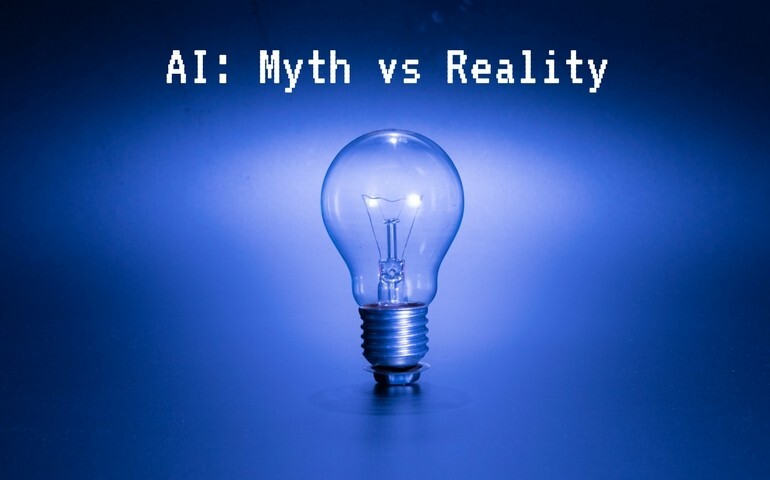
Discussions of artificial intelligence have recently swung from awesomely innovative achievements to definitely nightmarish dystopian worries. Driverless cars, voice assistants, complex algorithms—there is no denying that AI has found a place in modern life. However, with this interest and advancement in technology come continuing fears of that eventuality where this level of intelligence starts moving out of control, thereby usurping human intelligence and taking over the world. This paper looks into such fears by studying the veracity behind the myths of AI taking over the human world.
Understanding Artificial Intelligence

AI means emulating human intelligence in machines designed to think and learn like a human being. It is the term signifying the whole bunch of technologies ranging from simple and straightforward automation to advanced algorithms that have the potential to process human-like tasks, including natural language processing, image recognition, and decision-making.
The Fear of Singularity
One of the bigger issues with AI is that it could lead to a singularity, technically speaking, by recursively improving itself beyond human intelligence. Put simply, visionaries like Ray Kurzweil tout an event whereby, when AI finally does reach a superhuman level, it may progress so fast it’s beyond human control, leading to potential existential threats.
Disproof of the Utopian Myth

Current Limitations
Although there have been very remarkable advances, artificial intelligence is still very much constrained in the accomplishment of a myriad of applications. Machines surpass human beings in some applications, yet are unable to lack their flexibility and general intelligence.
Ethical Controls
Practitioners are insistent that in order for AI development to meet the societies’ expectations and expected human safety criteria, the development of ethical principles and guidelines is a requirement.
Human Control
AI systems still require human supervision and interference to prevent autonomous decision-making outside of programmed boundaries.
Economic Disruption resulting in unemployment

The other worrying of AI is its influence on jobs and the economy. Already, several industries are being reshaped through AI-related automation in ways that sow distress about the follow-on effects of widespread job loss and economic inequality
Job Creation
While some jobs will disappear, at the same time AI is also creating new opportunities and industries. It simply augments human capabilities rather than replacing them.
Reskilling Programs
Investment in programs that reskill workers to acquire the correct necessary skills for an AI-based economy.
Social Safety Nets
Universal basic income among other such schemes is envisioned to mitigate economic impacts of job loss.
Ethical & Moral Issues
Enormous ethical concerns with regard to AI technology are based on privacy, bias, accountability, and possible malicious intent by technology abuse.
Myth-Busting

Transparency
Work is already underway to make AI algorithms more transparent, and their decisions are made accountable.
Biased mitigation
Scientists are coming up with biased mitigation methods to identify and reduce bias in AI systems, stepping towards fairness and inclusiveness.
Ethical issues
Governments legislate on regulations in order to deal with ethical questions and protect the interests of society from the advancement of AI. Possibility of collaboration
Potential for Cooperation
Many experts suggest that machines and humans can work together to solve complex problems and increase productivity in improving the quality of life, rather than posing a threat by using AI.
How the False Belief Can be Proved Wrong
Augmented Intelligence
AI is said to be a version of augmenting human intelligence in the areas of better decision-making and enhancing creativity
Collaboration
The collaboration between humans and machines in making medical diagnoses and scientific discoveries underlines the proximity of AI to human knowledge.
Final thought: Embracing an Equitable Future
It is important to distinguish between truth and myths about the potential societal effects of AI as it advances. While acknowledging valid concerns, it is crucial to also highlight the positive impacts of AI in various areas such as healthcare, education, sustainability, and innovation.
The concern about AI ruling the world is more hypothetical than immediate. By encouraging responsible AI growth, ethical management, and championing human-centric methods, we can fully utilize AI’s capabilities while also protecting against potential dangers. The key to the future is not AI ruling over everything, but a cooperative alliance between humans and smart machines, advancing success and well-being for everyone.
As we venture into this realm of technology, let us engage with AI through curiosity, watchfulness, and a dedication to creating a future where human beings continue leading in innovation and advancement.















